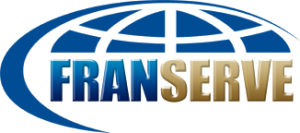TRAINING PROGRAMS TYPICALLY HAVE THREE COMPONENTS
One of the most important aspects of any franchise system is the training program.
When I talk to business owners about franchising their enterprises, I ask them very early to see their documentation on how to operate various aspects of their businesses. By going through these materials, I develop a sense of what the training program needs to look like, and these documents often can be repurposed and used in training franchisees and their employees. (Of course, if there are no documented processes, that translates into a whole different issue when it comes to creating a training program for the new franchise offering.)
For most franchise businesses, training programs consist of prelaunch, launch and continuing education components. Let’s explore all three.
- PRE-LAUNCH TRAINING
This should cover the period from when the franchise agreement is signed until the formal launch training that typically takes place right before the grand opening. There should be a business launch project plan in the operations manual that covers basic start-up tasks. It should present these tasks in chronological order and give the new franchisee a week-by-week program to follow.
The activities that would happen during this phase are creating the business entity, setting up bank accounts, searching for locations, learning industry terminology, ordering assets such as vehicles and signage, ordering inventory, and hiring employees. The steps for completing the prelaunch training need to be well-documented. The interaction with the franchisor will typically be done via phone or webinar, with no classroom-style training done during pre-launch training.
2. LAUNCH TRAINING
This is usually carried out in a classroom setting and/or in a franchisor-owned business location. On-the-job training also may occur.
Launch training should consist of learning how to use software systems, how to execute sales and marketing programs, how to handle customer service, and how to do specific work associated with the business. For many businesses, the owner has different work responsibilities from the staff members, so there may be separate training tracks depending on the responsibilities of the different staff positions within the business.
3. CONTINUING EDUCATION
It’s important for the franchisor to have plans in place for continuing or refresher training. Franchisees will need new training as additional service offerings are made available by the franchise business. Training also should be in place to cover changes in technology as they become available.
It’s smart to have refresher training every year or so. This will help make sure that franchisors don’t start to drift away from the best practices of the franchise system by developing potentially bad habits over time.
– Geoff Batchelder, CFC
Geoff Batchelder has been a franchise consultant and franchise development expert for the last 10 years. He helps launch successful businesses and builds strong franchise systems. Before that, he spent 25 years focusing on business development in the high-tech industry. Contact him at 877-222-3722 or email geoff@compassfranchisegroup.com. Visit www.compassfranchisegroup.com.

